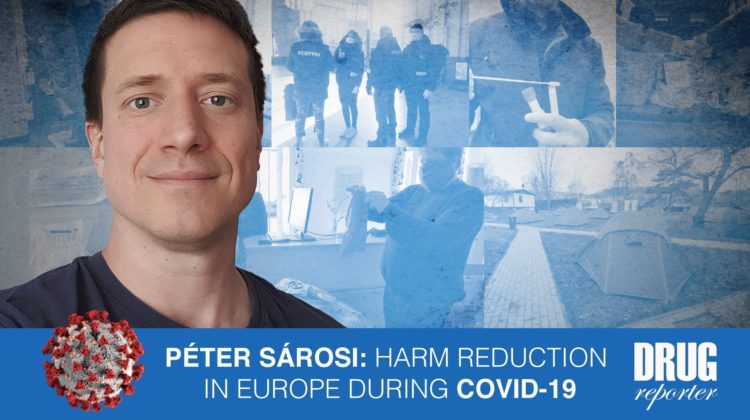In this time of crisis, harm reduction activists must go beyond their regular demands and urge governments to act quickly to prevent a public health crisis transforming into a social collapse (Greek translation).
The current epidemic is not only a public health emergency, it is also a social crisis. It exposes the putrid wounds in the very fabric of our societies. The wounds the political elites left untreated for too long: The growing inequalities between rich and poor. The growing skepticism about democratic institutions. The humiliation of science by politics. The shrinking space for civil society. The devastating consequences of so-called austerity politics on our public health and social care systems. The destabilisation of the welfare state, leaving behind so many communities without real perspectives and hope. Failing to deal with the growing housing crisis. Reforming the criminal justice system. The list can go on for pages – what is common is that the consequences of these failings become more visible in a time of crisis. And we have to pay for them with human lives.
Social isolation, the magic mantra of the upper-middle class – the desire to leave behind the dangers of the underworld and escape to the protected gardens of Elysium – is a mockery for those who are poor and marginalised. They don’t have savings to store food or medicines. They often don’t have a home to self-quarantine. They don’t have strong social networks to help them out. The policy of social isolation, without adequate support from governments, means a death sentence for these people in the longer run. Many more people could die of the economic and social consequences of the epidemic than of the virus itself.
|
HOW DOES THE COVID-19 EPIDEMIC AFFECTS PEOPLE WHO USE DRUGS?  LOSS OF INCOME  LOSS OF SERVICES  RISK OF INCARCERATION  DIFFICULTY TO DEAL WITH CONFINEMENT  LOSS OF HOUSING  GROWING DRUG PRICES POOR WITHDRAWAL MANAGEMENT  BARRIERS TO ACCESS TO OPIATE SUBSTITUTION TREATMENT  DISRUPTION IN MEDICAL TREATMENT  LACK OF PROTECTIVE EQUIPMENT  OVERCROWDING AT SERVICES |
Extraordinary times require extraordinary measures, as the saying goes. Harm reduction services need to go beyond their usual activities in these difficult times and help their clients to cope with the dire new situation. To provide them not only with needles and methadone, but with food, water, masks, and shelter. In the end, this is what harm reduction is about: pragmatic and compassionate help for people in need – what they really need, where they are at.
The same is true for our advocacy efforts. I challenge all fellow activists to go beyond their ordinary advocacy for changing drug laws or promoting HIV prevention. For too long we have been fighting only the mere symptoms of underlying social and economic conditions that seemed to be too huge to address. During the crisis, we have to advocate for more than just distributing needles. We have to say loud and clear: we need deep and long-lasting social transformation to avoid social collapse.
As long as we have a broken health and social care system, as long as we have a growing real estate bubble while even middle class young people have no chance to ever buy their own homes, as long as urban poverty and homelessness devastate generations after generations, we cannot expect to “tackle the world drug problem.” Growing impoverishment and homelessness as a consequence of the lockdown will lead to social tensions that will damage the societal order that the elites want to preserve at any cost – so make them pay for it.
Here are some ideas for consideration!
FIVE SOCIAL JUSTICE DEMANDS DURING THE CRISIS

1. BASIC INCOME
Provide an unconditional basic income to prevent a humanitarian crisis and help to reduce social inequalities;

2. DROP THE PATENTS
Urge pharmaceutical companies to drop patents and help to fight the epidemic with innovations whilst ensuring access to essential medicines;

3. AFFORDABLE HOUSING
Introduce a moratorium on evictions due to unpaid rents/bills/mortgages. Provide social housing for those people who have lost their homes due to the crisis and fund housing-first initiatives to support them;

4. STRENGTHEN PUBLIC HEALTH AND SOCIAL CARE
Reallocate budgets to strengthen the public health and social care systems & end austerity politics;

5. CRIMINAL JUSTICE REFORM
Reform criminal justice systems, decriminalise victimless crimes, such as drug use, to reduce prison populations and explore alternatives to coercive measures.
Peter Sarosi





